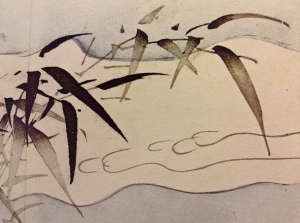Imagine floating in warm water. Your eyes are closed and the sounds of the outside world have receded. You are gently stretched by the drag of the water while being comfortably supported. You glide back and forth while your limbs are soothingly stretched and your back is softly flexed. You feel like seaweed floating on the surface of the sea. This is Watsu.
The brainchild of California Shiatsu teacher Harold Dull, Watsu combines elements of massage, movement, dance, stretching, and Shiatsu—all performed in 95 degree  chest-deep water. First developed at Harbin Hot Springs, California in the early 1980’s Watsu incorporates therapeutic movements in the pool that can’t comfortably be performed on land. During a Watsu session, you are continuously supported in the water, both by your therapist and a variety of flotation devices. The weight is taken off your spine, your muscles relax, and you are rocked, stretched, arched, and bent—all in what feels like a very comfortable bath.
chest-deep water. First developed at Harbin Hot Springs, California in the early 1980’s Watsu incorporates therapeutic movements in the pool that can’t comfortably be performed on land. During a Watsu session, you are continuously supported in the water, both by your therapist and a variety of flotation devices. The weight is taken off your spine, your muscles relax, and you are rocked, stretched, arched, and bent—all in what feels like a very comfortable bath.
The name Watsu comes from combining the terms water and Shiatsu. Based on many of the same principles as acupuncture, Shiatsu is a form of Japanese massage therapy in which finger pressure is applied to various points on your body. During a Watsu session however, therapeutic effect is obtained by bending and stretching your body in a way that opens up the same energetic pathways used in Chinese medicine.
The benefits of Watsu are many; among them:
-The gentle movements performed in warm water can help to relieve muscle and joint pain
-Watsu is incredibly relaxing and an ideal way to calm your mind and relieve symptoms associated with chronic stress.
-It is ideal for recovery from injuries. Because it is not weight bearing, your Watsu therapist is able to gently increase your flexibility and range of motion.
-The relaxing nature of Watsu also reduces muscle tension and spasticity.
-It can promote better sleep.
Watsu therapists are certified by WABA, the Worldwide Aquatic Bodywork Association, which required both coursework and supervised training. If you are looking for a Watsu practitioner in your area, a good place to start is with WABA, who maintains a registry of people worldwide who are qualified to provide a Watsu session.
My most recent Watsu session was at the therapy pool at The Marsh, a cross between a fitness club and healing sanctuary in Minnetonka, MN. Mary LeSourd, my practitioner, gently pulled me through the water, stretched my tight hips, flexed and extended my back, and worked the tension out of my neck and shoulders. I left feeling wet noodle relaxed, warm, and incredibly loose. For over an hour in a delightfully warm pool overlooking acres of marshland, I was seaweed.




So happy that you have discovered Watsu! I am a practitioner in Pennsylvania. There is so much potential by using this modality in helping people de-stress and heal. This was a good write-up! Thanks for sharing!
I agree! Watsu is definitely the most relaxing bodywork I have ever done. As such it has huge potential to relieve symptoms related to chronic stress. I’m hooked!
This seems very relaxing, Lynn! I would love to try it too. Around how much does each session costs?
Alex, the cost of a Watsu session varies by practitioner, region, and length of session. Your best bet is to find a Watsu practitioner near you and check out their prices.